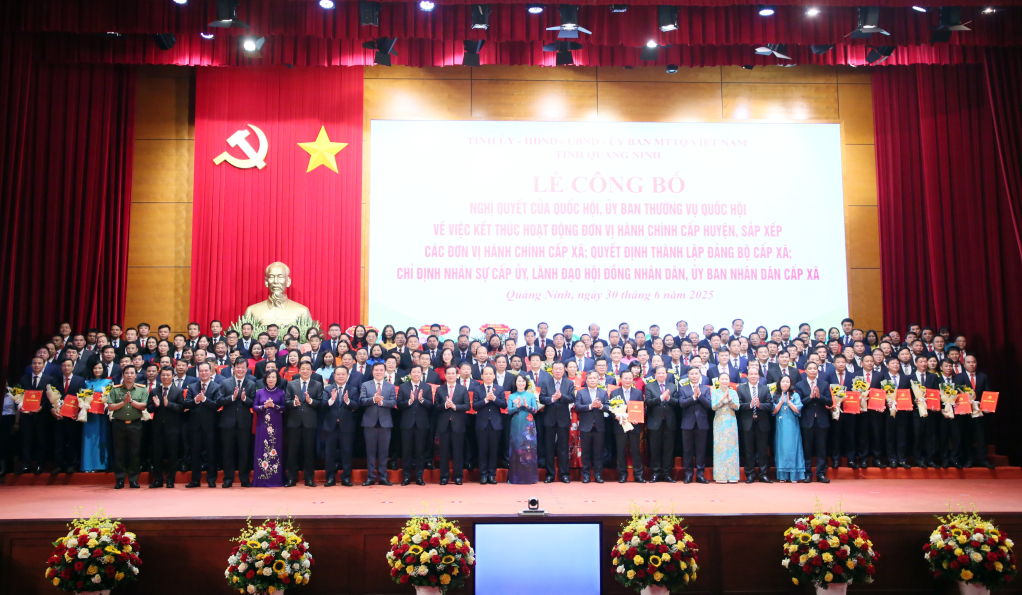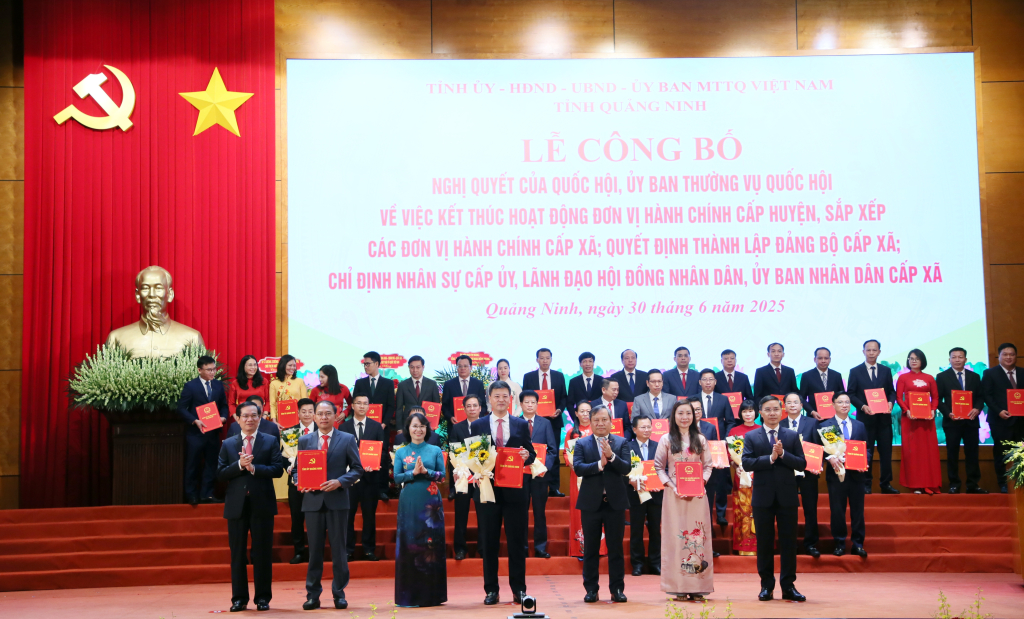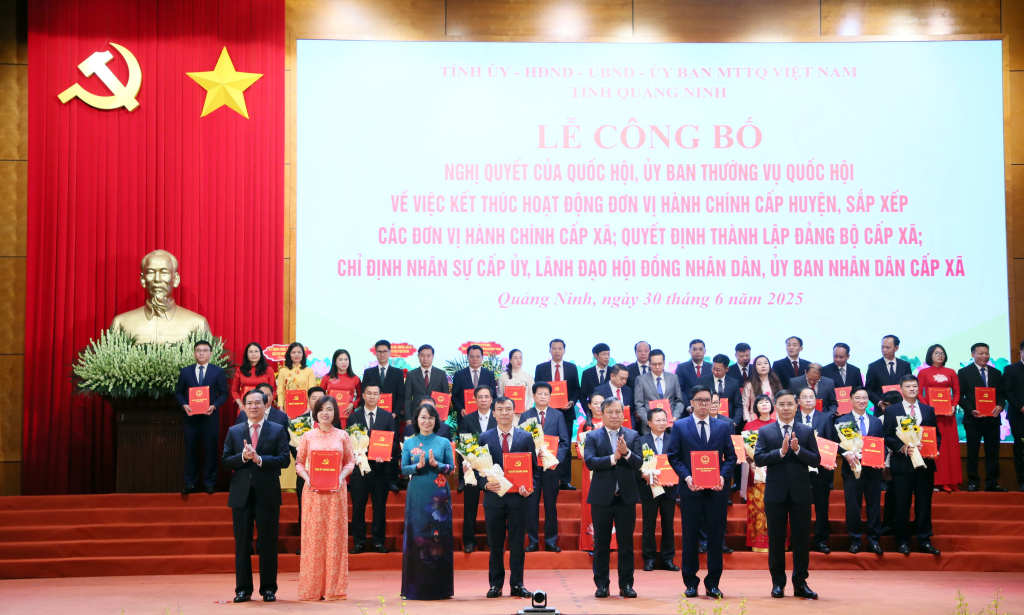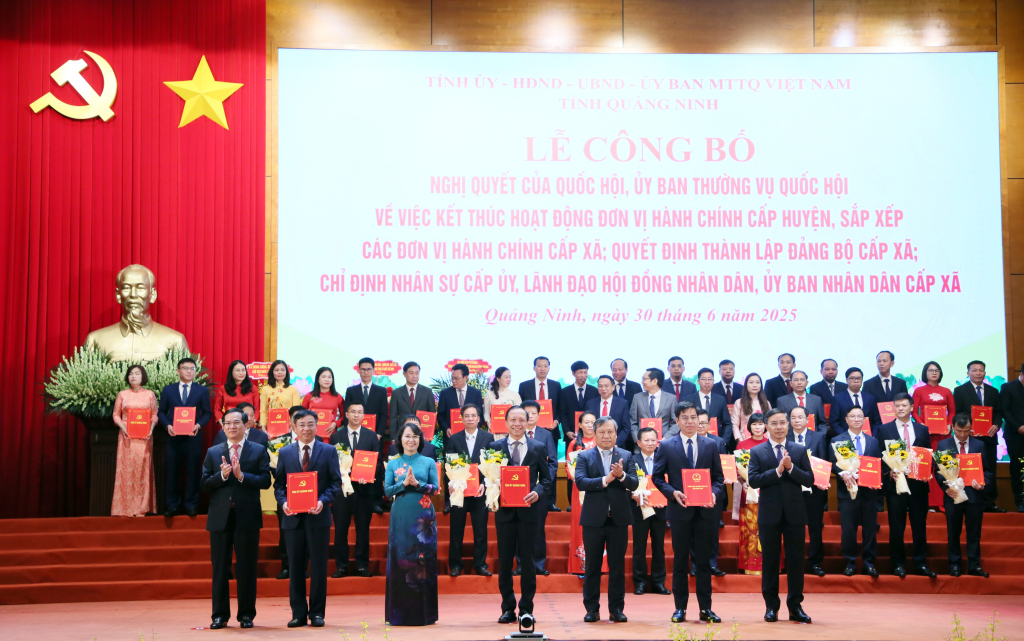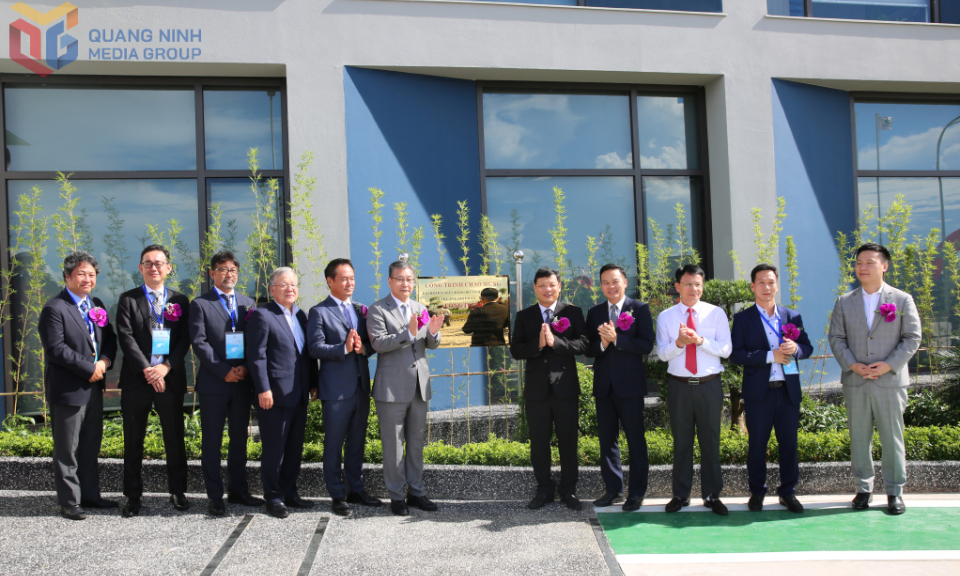Quang Ninh announces the operation of two-tier local administrations
On June 30, the Quang Ninh Provincial Party Committee held a ceremony to officially announce key decisions related to the implementation of the two-tier local government model. This move follows the resolutions of the National Assembly Standing Committee and decisions issued by the Provincial Party Committee and its standing board.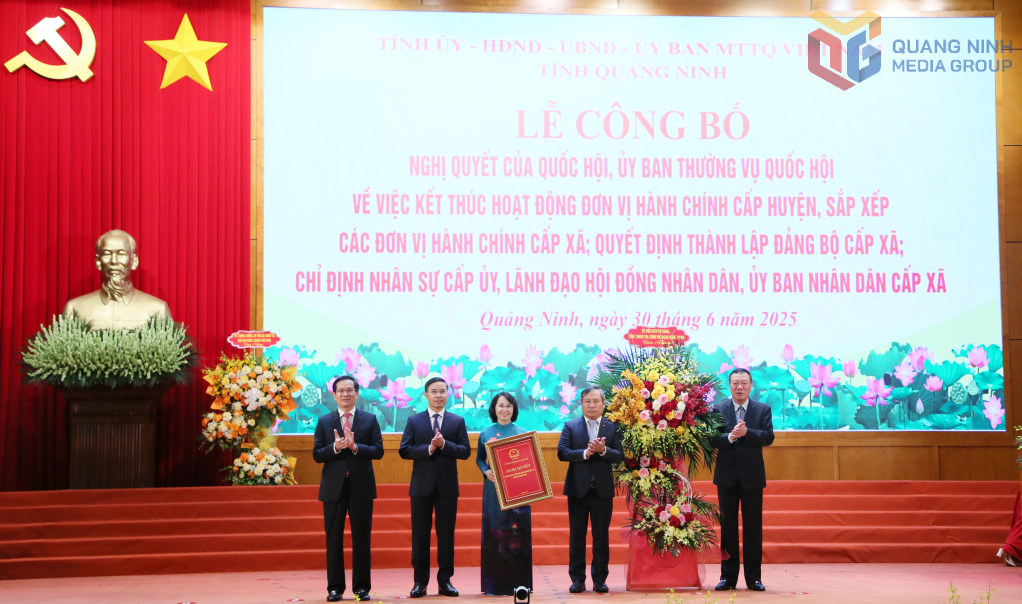
The announcements include the conclusion of operations for former district-level administrative units, the reorganization of commune-level divisions, the establishment of new commune-level Party committees, and the appointment of local leadership for the Party, People’s Councils, and People’s Committees. This marks a major step in streamlining the administrative system, enhancing the efficiency and effectiveness of governance across the province.
The ceremony was held both in person and virtually, connecting 54 communes, wards, and special zones via livestream, and broadcast live on QTV1, Quang Ninh Radio, and the province’s digital media platforms.
At the event, the Standing Board of the Provincial Party Committee announced the National Assembly Standing Committee’s resolution on reorganizing commune-level administrative units in Quang Ninh for 2025. As a result, a total of 54 new administrative units have been established, comprising 22 communes, 30 wards, and 2 special administrative zones. Of these, 21 communes, 30 wards, and 2 special zones were formed through the restructuring process, while Cai Chien Commune remains unchanged.
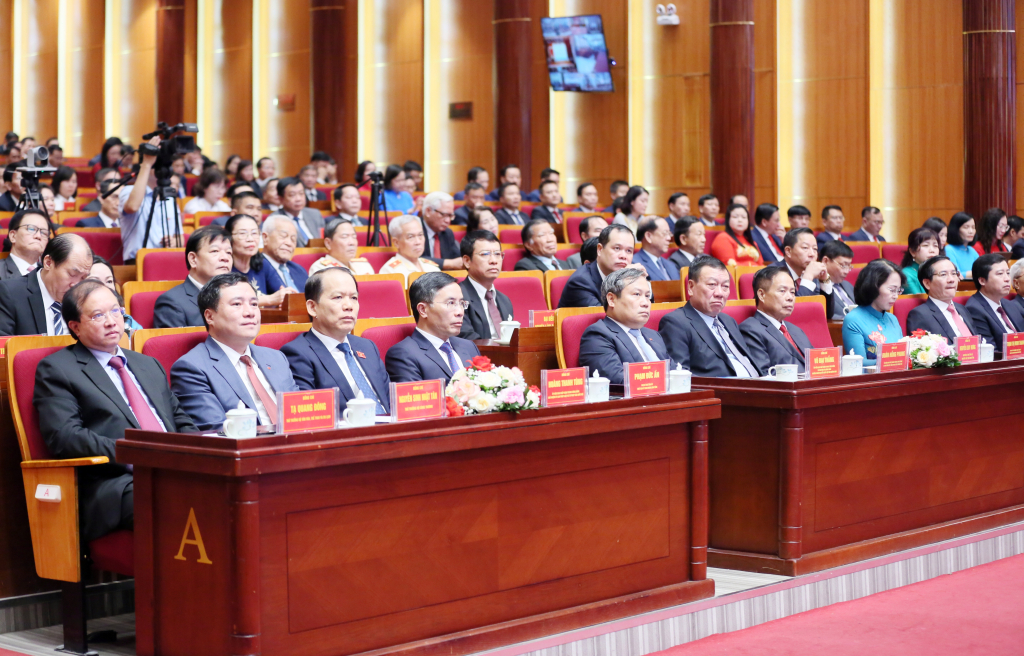
Also announced were:
- The dissolution of the former district-level Party organizations;
- The establishment of 54 new Party committees at the commune, ward, and special zone levels;
- The appointment of executive boards, Party secretaries and deputy secretaries, and inspection committees;
- The formation of new grassroots-level Vietnam Fatherland Front chapters;
- Resolutions appointing chairpersons and vice-chairpersons of the People’s Councils and People’s Committees in the newly formed units.
Speaking at the event, Member of the Party Central Committee and Government Chief Inspector, Doan Hong Phong, emphasized the historic significance of the event, not only for Quang Ninh but for the country as a whole. He noted that the reform is part of a major Party and State policy to restructure the political system into a more streamlined, efficient, and people-centered model, helping Vietnam move confidently into a new era of national development.
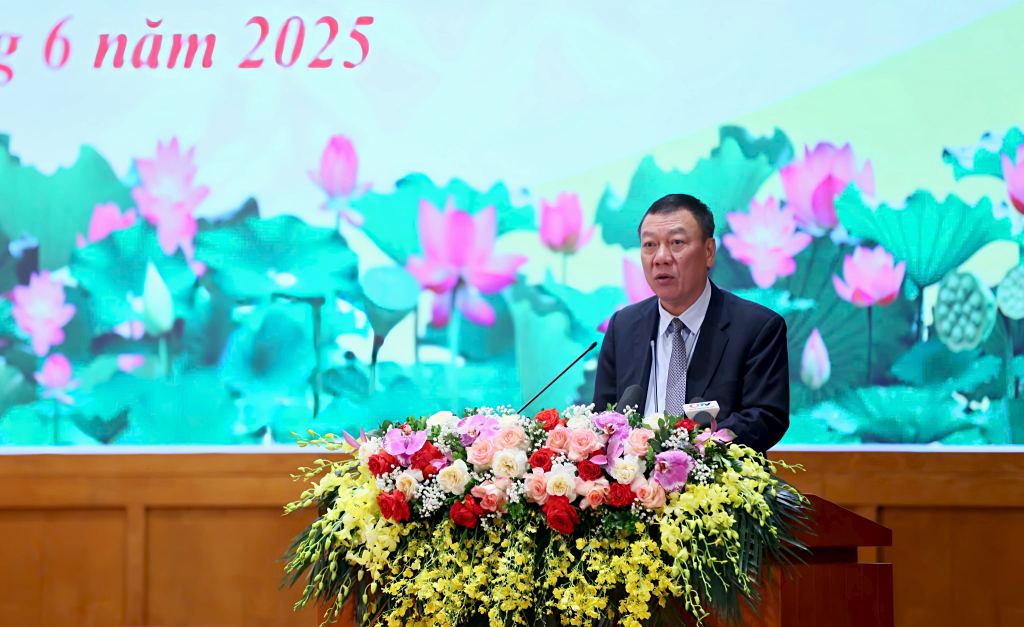
The Government Chief Inspector expressed confidence that with unity, strong political will, bold reforms, and decisive action, Quang Ninh’s Party organization, government, and people will successfully fulfill their responsibilities and contribute to the nation’s shared journey toward prosperity.
Addressing the ceremony, Member of the Party Central Committee, Secretary of the Provincial Party Committee, and Head of the Quang Ninh delegation to the National Assembly, Vu Dai Thang, reaffirmed that implementing the Central Government’s Resolution No. 18-NQ/TW on administrative restructuring and building the two-tier governance model is a particularly important task for the province. Quang Ninh approached the task with a high level of political determination, following the principle of "organizing while moving forward," and achieved positive results thanks to the responsible contributions of all levels of government and widespread public support.
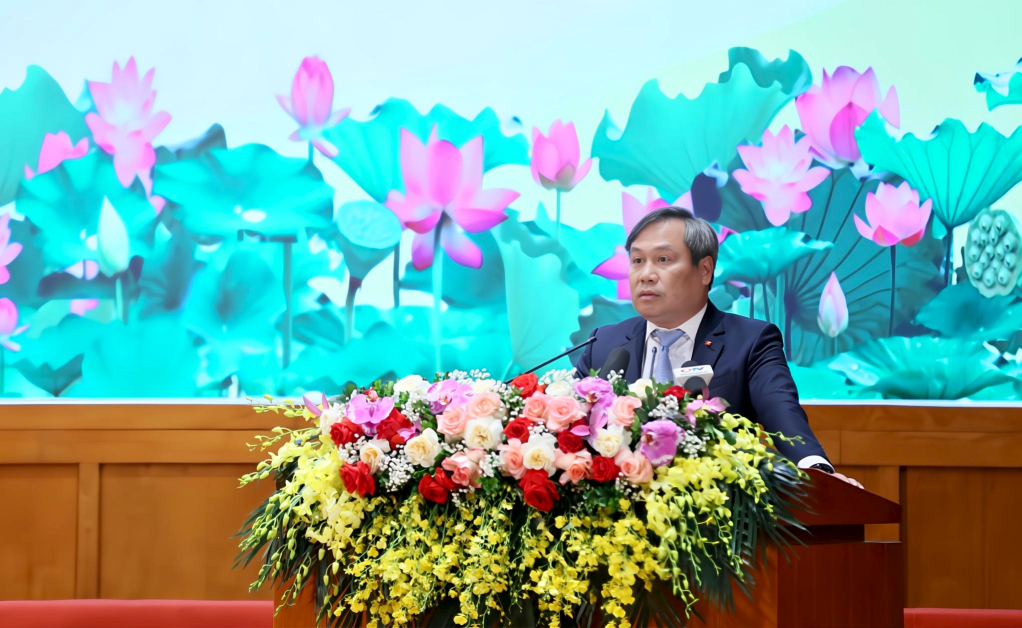
He also recognized and praised the dedication of generations of officials who served in the now-dissolved district and commune-level units. Over decades, these units functioned as solid foundations, both in wartime and peacetime, playing key roles in building the Party, driving socio-economic development, maintaining national defense and security, and improving the lives of local residents. In war, they served as a secure rear guard; in peace, as a reform front line, representing the collective intelligence, resilience, and tireless commitment of generations of Party members and citizens.
Provincial Party Secretary Vu Dai Thang urged the entire grassroots political system, from Party committees and local governments to mass organizations to quickly stabilize their structures, establish working regulations, and ensure that newly reorganized units operate at a higher level of performance. Responsibilities must be clearly assigned, and work must begin without delay and with the highest sense of accountability.
He emphasized that inertia, indecision, or fear of responsibility must not exist in the new two-tier administrative system. There must be no gaps in leadership, no disruption in services, and no task left unfinished. Above all, no citizen or business should be adversely affected by the reorganization. From the very first day, officials must embody a style of governance that is close to the people, with the citizens placed firmly at the center of public service.
